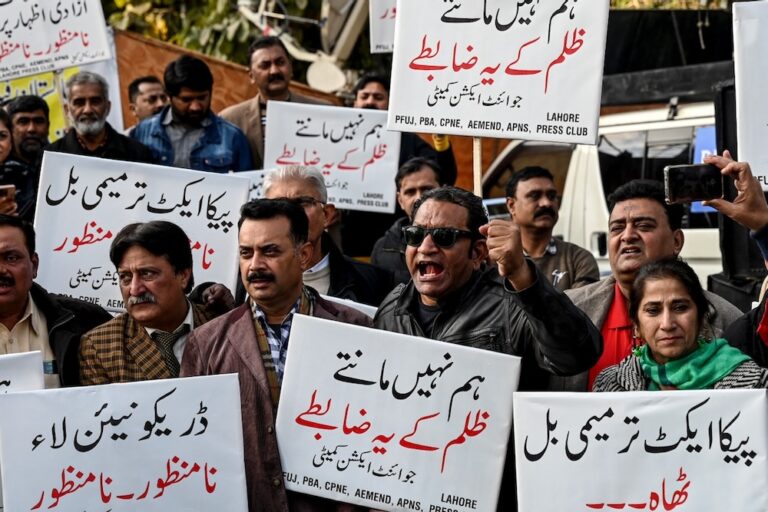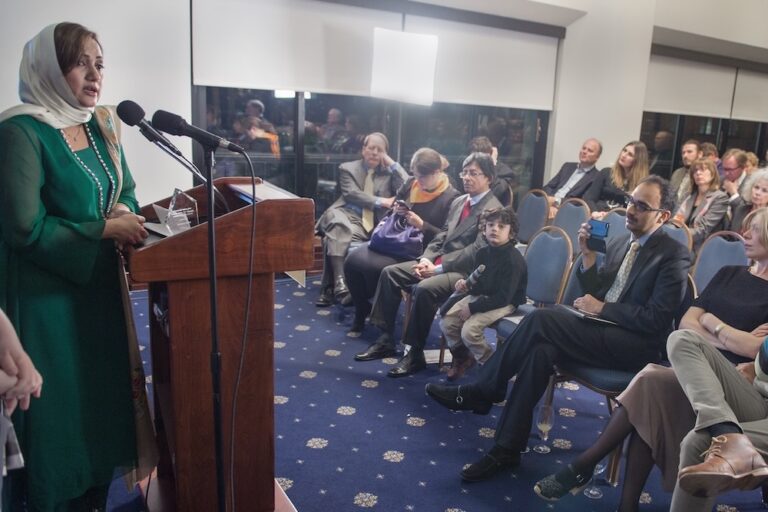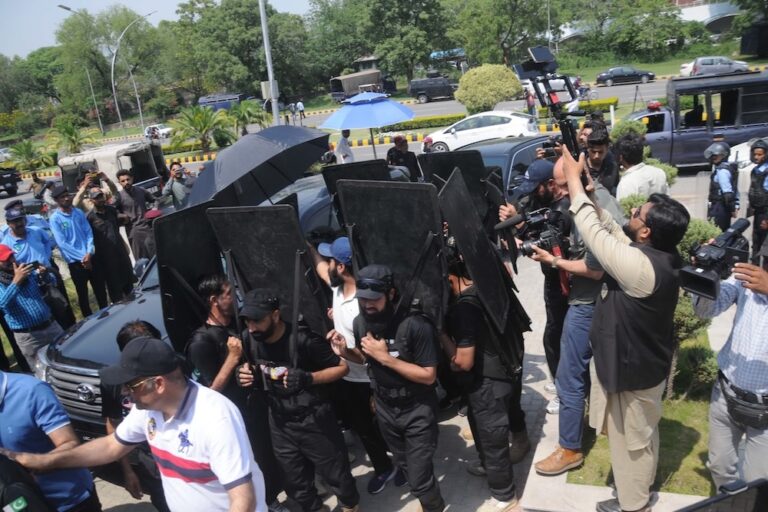(RSF/IFEX) – In a letter to the minister of the interior, General Lieutenant Moin-ud-din-Haider, RSF protested Irfan Qureshi’s arrest, as he crossed the border after a month’s detention in Afghanistan. Qureshi was the guide of Michel Peyrard, a journalist from the French weekly “Paris Match”. “We ask you to intervene with Khyber Agency authorities, as […]
(RSF/IFEX) – In a letter to the minister of the interior, General Lieutenant Moin-ud-din-Haider, RSF protested Irfan Qureshi’s arrest, as he crossed the border after a month’s detention in Afghanistan. Qureshi was the guide of Michel Peyrard, a journalist from the French weekly “Paris Match”. “We ask you to intervene with Khyber Agency authorities, as the federal authorities did in support of Michel Peyrard, who was not arrested after crossing the border. Both situations should be treated the same way,” stated RSF Secretary-General Robert Ménard. The organisation condemned the decision, which is as incomprehensible as it is unacceptable. “Arresting a Pakistani citizen in that way is likely to shock those who took action, all around the world, for his release,” Ménard pointed out. The organisation also asked the minister to start new procedures for the release of Pakistani journalist Mukkaram Khan, who remains detained in Jalalabad.
According to information gathered by RSF, Qureshi, a Pakistani journalist, was released on 10 November 2001 by the Kabul authorities. A Taliban officer handed Peyrard’s guide to the Pakistani authorities, who arrested him at the Torkham (North-West Frontier Province) border post. He ws held in the city of Landi Kotal (west of Peshawar), in a building of the Khyber Agency’s authorities, where he was questioned by the Pakistani secret services (ISI) officers. Qureshi was finally released on 11 November.
On 9 November, one of Qureshi’s brothers left Islamabad for Jalalabad, with a letter from the Taliban ambassador in Islamabad, Mullah Abdul Zaef, asking for the journalist’s release. Since Peyrard’s 3 November release, he and Qureshi’s family had attempted to obtain his release, which was delayed by an unexplained decision of the Jalalabad secret services.
However, the Taliban imposed another condition for the release of Khan, who had also accompanied Peyrard. According to a Taliban officer interviewed by Agence France Presse at the border, his release will not be allowed unless the authorities of the Mohmand Agency, of which he is a native, request it. But his family is still suffering reprisals from the area’s inhabitants. After the journalist was arrested by the Taliban and charged with espionage for the United States, hundreds of people gathered in front of his home, threatened to burn it, expel his family from the tribe and try the journalist in accordance with tribal laws as soon as he returned. One of Khan’s brothers was forced to take refuge in Peshawar and his family hired armed guards to protect their belongings.
From 5 to 18 October, Muhammad Iqbal Fridi, from the Urdu-language daily “Al-Akhbar”, Rifatullah Orakzai, from the English-language newspaper “Khyber Mail International”, and Syed Karim, from the Urdu-language daily “Khabrain”, were detained in Pakistan by Khyber Agency authorities. The three journalists, all natives of the tribal areas, were arrested with two reporters from the French television channel LCI, Olivier Ravanello and Jérome Marcantetti. The French reporters were released on 8 October, owing to the French Embassy’s intervention (see IFEX alerts of 17 and 11 October 2001).
After the arrest of several foreign and Pakistani journalists either in Afghanistan or trying to enter the country, the Islamabad authorities announced that they would take measures to punish any “illegal crossings” at the border.


